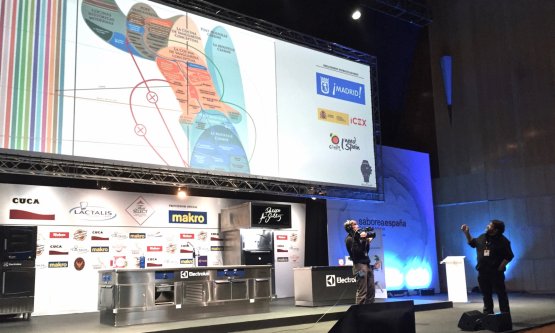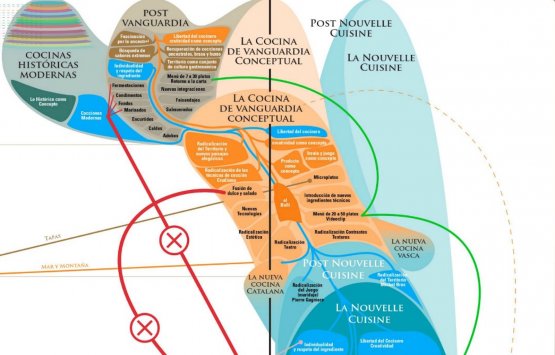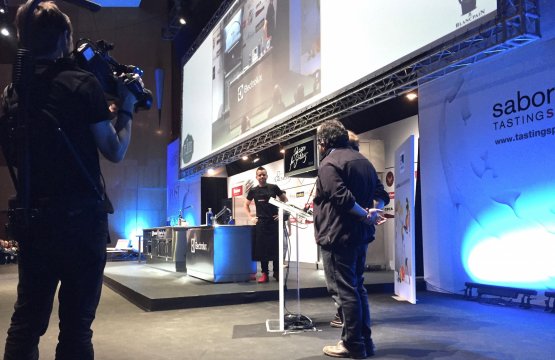31-01-2016
The Post-avantgarde Manifesto
Concepts and scope of the new culinary current explained by one of its theorisers, Quico Sosa

Quico Sosa, culinary thinker, one of the most prominent in the last twenty years, explained the concept of post-avantgarde, the culinary movement of which he was one of the theorisers, on the stage of Madrid Fusión. Here is his piece for Identità Golose, after we had already written about him in our news
Against a nominal approach – They say that a name is not the substance of an object but allows interpreting it. All the names of the cultural movements that characterise cuisine are not original but draw from more popular definitions, or definitions we think fit best. Others, however, can be used with no issues.

Complicated graphics for a complicated concept
– An analysis is necessary in order to understand what happened and what is happening. We could have quoted many elements: menu, dining room, flavour intensity, use of technology, etc. We chose integration, because we believe it can well explain what is going on and it is an essential element in the change of model. For sure, it is a partial and improvable point of view, yet we will continue to discuss it. We need to consider it like a stimulus to reflect on gastronomy from a historic point of view. And should this stimulus allow someone to improve it, it will have accomplished its task.
The silliness of analysing chefs who do what they want – Each chef moves freely between cultural trends. He can start his career within nouvelle cuisine and continue thus, or prefer a more conceptual cuisine or mix both things. Or offer nouvelle cuisine in the à la carte menu and avantgarde cuisine in the tasting one. Or keep dishes that could be classified as avantgarde, post-avantgarde and even historic-modern in the same menu. And why not a traditional dish. Chefs in fact do what they want and what they like. This is why they are modern cooks.

Sosa on the stage of Madrid Fusión with Dabiz (or David) Muñoz, considered one of the most important representatives of post-avantgarde
I say this: things change and so do models. New languages have been born and horizons have opened. What is going on in the world? Well above the free modern model, above the substratum left by culinary avantgarde, above the technical, aesthetical and conceptual radicalization, we witness a clear movement towards raw taste, towards the historic elements that have added flavour in cooking. Umami, seasonings, sauces, pickles, fermentation, maturation. There’s an intense dialogue with the pre-nouvelle cuisine especially with the non-Japanese one. These cuisines are based on the integration of the ingredients, on power, on wild herbs... We could call it a correction towards the reintegration of the dish and towards more active flavours. All this without losing the modern and avantgarde model. Cuisine corrects and reinvents itself. Everything passes and everything stays. Creativity doesn’t stop. Post-avantgarde is born and coexists with modern and avantgarde cuisines, and with traditional cuisine too.
Dal Mondo
Reviews, recommendations and trends from the four corners of the planet, signed by all the authors of Identità Golose
Born in Catalonia in 1968, a graduate in Philosophy from Università di Bologna, he's «el druida de los sabores», in the words of Josè Carlos Capel. With his Sosa Ingredients, he used to supply El Bulli and now supplies the Roca hermanos: from lecithin of soy to lyophilized mushrooms, from seaweeds to spices
Author's articles list